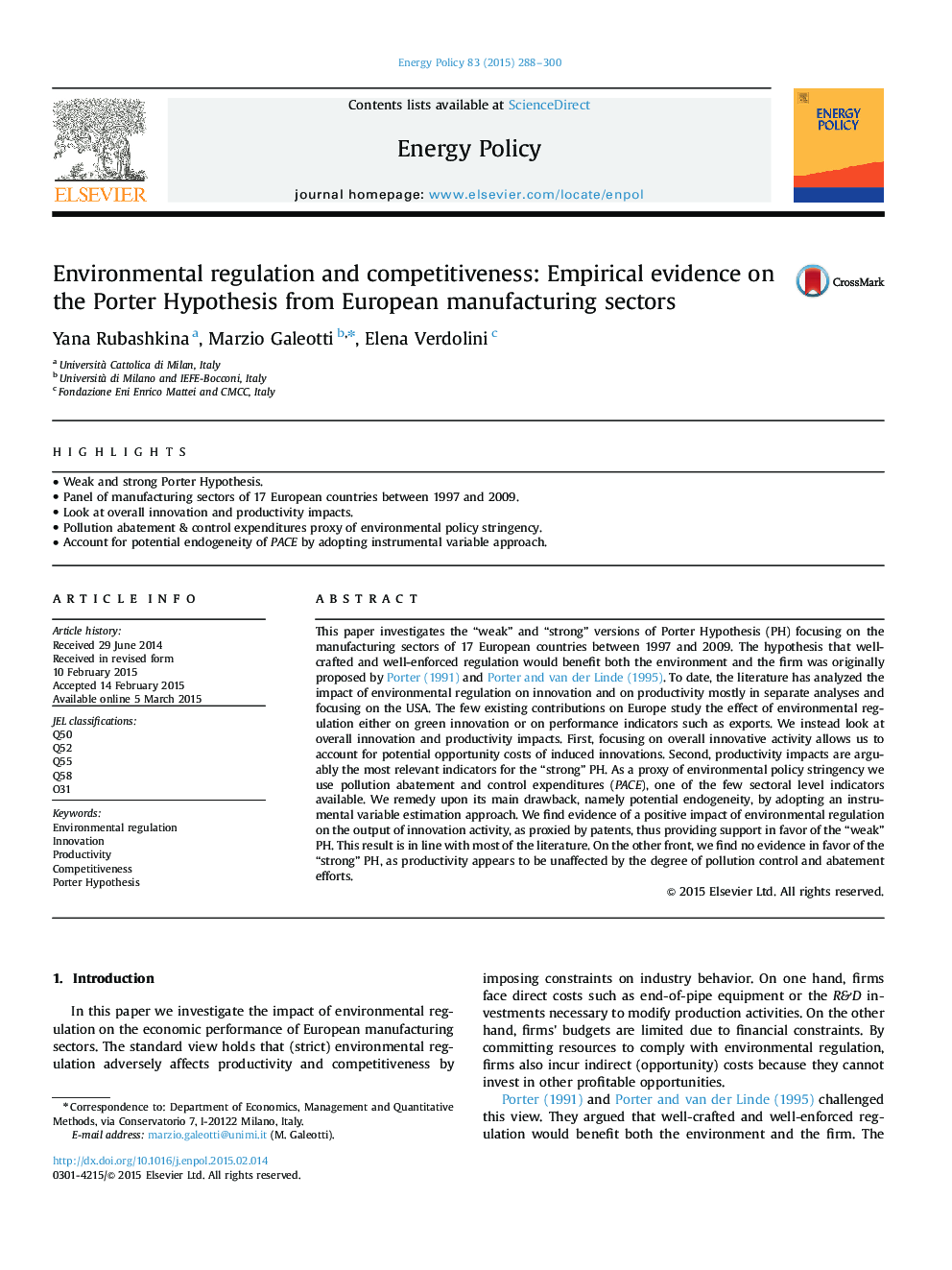| کد مقاله | کد نشریه | سال انتشار | مقاله انگلیسی | نسخه تمام متن |
|---|---|---|---|---|
| 995294 | 1481275 | 2015 | 13 صفحه PDF | دانلود رایگان |
• Weak and strong Porter Hypothesis.
• Panel of manufacturing sectors of 17 European countries between 1997 and 2009.
• Look at overall innovation and productivity impacts.
• Pollution abatement & control expenditures proxy of environmental policy stringency.
• Account for potential endogeneity of PACE by adopting instrumental variable approach.
This paper investigates the “weak” and “strong” versions of Porter Hypothesis (PH) focusing on the manufacturing sectors of 17 European countries between 1997 and 2009. The hypothesis that well-crafted and well-enforced regulation would benefit both the environment and the firm was originally proposed by Porter (1991) and Porter and van der Linde (1995). To date, the literature has analyzed the impact of environmental regulation on innovation and on productivity mostly in separate analyses and focusing on the USA. The few existing contributions on Europe study the effect of environmental regulation either on green innovation or on performance indicators such as exports. We instead look at overall innovation and productivity impacts. First, focusing on overall innovative activity allows us to account for potential opportunity costs of induced innovations. Second, productivity impacts are arguably the most relevant indicators for the “strong” PH. As a proxy of environmental policy stringency we use pollution abatement and control expenditures (PACE), one of the few sectoral level indicators available. We remedy upon its main drawback, namely potential endogeneity, by adopting an instrumental variable estimation approach. We find evidence of a positive impact of environmental regulation on the output of innovation activity, as proxied by patents, thus providing support in favor of the “weak” PH. This result is in line with most of the literature. On the other front, we find no evidence in favor of the “strong” PH, as productivity appears to be unaffected by the degree of pollution control and abatement efforts.
Journal: Energy Policy - Volume 83, August 2015, Pages 288–300
